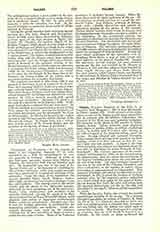

UNIVERSITY OF VALENCIA. —At the request of Jaime I the Conqueror, Innocent IV in 1246, authorized by a Bull the establishment of estudios generates in Valencia. Although in virtue of this Bull some university courses were followed in Valencia, the university itself was not founded until 1411. Its foundation was due to the zeal of St. Vincent Ferrer and to the donation of a building by Mosen Pedro Vilaragut. Only very meagre accounts have been preserved of the practical workings of the university. From the time of its foundation the courses included Latin, Greek, Hebrew, Arabic, philosophy, mathematics and physics, theology, canon law, and medicine. The closing years of the seventeenth, and the whole of the eighteenth century, witnessed the most prosperous era of the university, Greek, Latin, mathematics, and medicine being specially cultivated. Among the names of its illustrious students that of Tosca, Torricelli’s friend, noted physicist and author of important mathematical works, stands out prominently. Eseolano says that it was the leading university in mathematics, the humanities, philosophy, and medicine. Large anatomical drawings were made by the students. Valencia was the first university of Spain to found a course for the study of herbs. Many of the Valencian graduates of medicine became famous. Pedro Ximeno discovered the third small bone of the ear. He was professor at Alcala and had for a pupil the celebrated Valle’s. Luis Collado, professor of botany, made some valuable discoveries and carried on exhaustive studies of the plants of the Levant Vicente Alonzo Lorente wrote works on botany; and the famous botanist Cavanilles was also a student of this university. In the seventeenth century the university divided into two factions, the Thomists and the anti-Thomists. The discussions were heated and aroused partisan feelings throughout the entire Kingdom of Valencia. The university possessed a library of 27,000 volumes which was destroyed by the soldiers under the command of General Suchet. Among the most noted professors of the university was D. Francisco Perez Bayer, a man of wide culture and great influence in the reign of Charles III. Around the university several colleges for poor students sprang up: the first was founded by St. Thomas of Villanova in 1561 and then followed those founded by Dona Angela Alonsar, and Mosen Pedro Martin. The most famous, called Corpus Christi, was founded by Blessed Juan de Ribera; Philip II founded that of San Jorge; and Melchor de Villena founded the last in 1643.
TEODORO RODRIGUEZ

